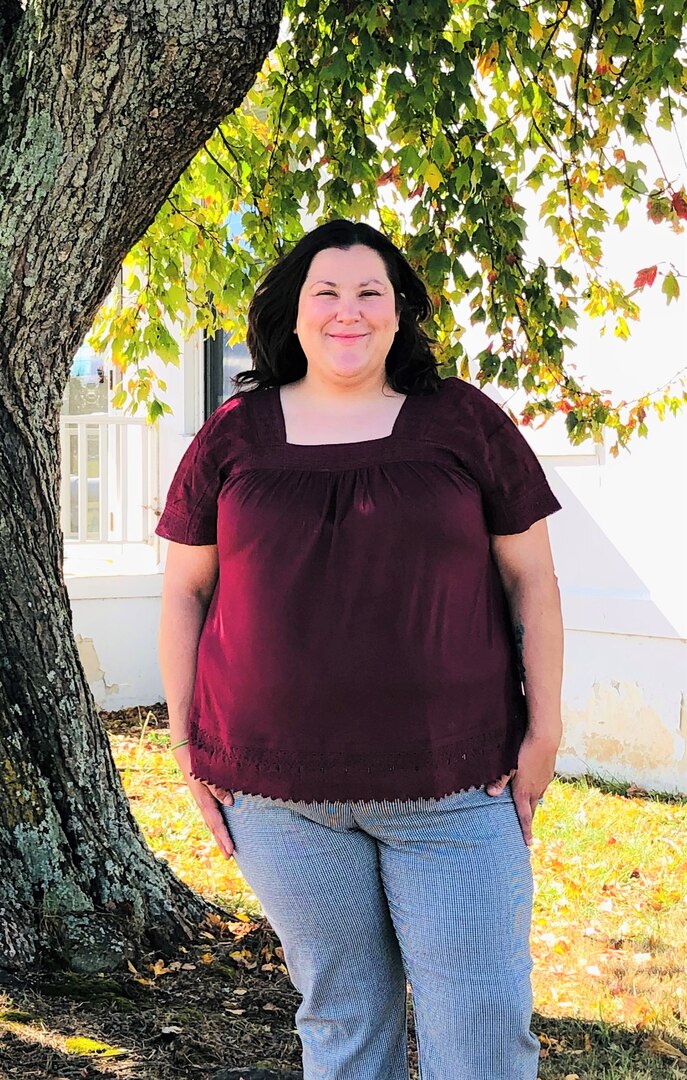Family. Tradition. Culture. For Helen Roehm, these are not just words but fundamental concepts for a fulfilling life. Professionally, Roehm helps foster a diverse cultural atmosphere while enhancing the workplace at Naval Surface Warfare Center Dahlgren Division (NSWCDD) through his talents and team interaction.
Roehm is the NSWCDD Highlighted Employee for American Indian National Heritage Month.
Roehm earned a bachelor’s degree in mathematics from Bowie State University and began a teaching career soon after. She joined NSWCDD in May 2020 during the COVID-19 pandemic. “It was quite an adjustment moving from the classroom to the war center work environment, but the people here at Dahlgren made this process feel effortless and welcoming,” Roehm recalled during a recent conversation. Roehm is currently pursuing a master’s degree in computer science at Virginia Commonwealth University.
As a former math teacher, Roehm instilled valuable lessons in her students and demonstrated her passion for science and math every day in the classroom. Likewise, Roehm shares his expert knowledge with his NSWCDD team and nurtures an environment to develop more innovative technologies. “I really appreciate the work I do and being part of the mission that supports the fighter.”
In his current role as a Systems Software Developer and Agile Coach within the Directed Energy Systems Software branch, Roehm supports several programs such as the Laser Weapons Combat System for the Aurora Software Foundry. She also serves as a group leader and mentor, for which she has received recognition and accolades highlighting her work and services.
Roehm’s passion for science and math extends to his personal life, actively promoting STEM-related programs within various youth organizations.
As an observant member of the Bad River Chippewa Tribe located in Odanah, Wisconsin, Roehm devotes his time and energy to teaching Native American traditions and culture throughout his community. “I believe it is essential to continue to promote, encourage and be involved in teaching and maintaining the traditions of our history,” Roehm said. “Knowing who we were helps determine who we are now and who we want to be in the future. It affects all areas of our lives.”




